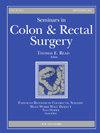培养外科领导的多样性和包容性
IF 0.5
Q4 SURGERY
引用次数: 0
摘要
医疗保健领域的多元化领导可以增强决策、促进创新并改善患者的治疗效果。本章倡导从传统的多样性、公平和包容性(DEI)框架转向包容性卓越的概念,将多样性作为组织成功的核心组成部分。包容性卓越强调交叉性,承认个人不同身份的独特价值,包括种族、性别、社会经济背景和专业经验。包容性领导通过改变组织文化、改革招聘流程和为有抱负的领导者创造途径,解决了边缘化群体在外科手术式领导中的代表性不足问题。医疗保健以外行业的经验教训提供了可操作的策略,将交叉性作为领导力发展的基础。虽然这些努力对于减少卫生差距和改善系统至关重要,但多样性倡议面临的政治和法律挑战构成了重大威胁。强有力的体制支持对保障进步至关重要。通过培养包容性的领导,外科可以更好地反映和服务于不同的人群,确保为所有患者提供富有同情心、公平和创新的护理。本文章由计算机程序翻译,如有差异,请以英文原文为准。
Cultivating diversity and inclusion in surgical leadership
Diverse leadership within healthcare enhances decision-making, fosters innovation, and improves patient outcomes. This chapter advocates for a shift from traditional diversity, equity, and inclusion (DEI) frameworks to the concept of inclusive excellence, embedding diversity as a core component of organizational success. Inclusive excellence emphasizes intersectionality, recognizing the unique value of individuals’ varied identities, including race, gender, socioeconomic background, and professional experiences.
Inclusive leadership addresses the underrepresentation of marginalized groups in surgical leadership by transforming organizational culture, revamping recruitment processes, and creating pathways for aspiring leaders. Lessons from industries outside healthcare offer actionable strategies to embed intersectionality as a foundation for leadership development. While these efforts are essential to reducing health disparities and improving systems, political and legal challenges to diversity initiatives pose significant threats. Strong institutional support is critical to safeguarding progress. By fostering inclusive leadership, surgery can better reflect and serve diverse populations, ensuring compassionate, equitable, and innovative care for all patients.
求助全文
通过发布文献求助,成功后即可免费获取论文全文。
去求助
来源期刊

Seminars in Colon and Rectal Surgery
SURGERY-
CiteScore
0.60
自引率
0.00%
发文量
43
期刊介绍:
Seminars in Colon and Rectal Surgery offers a comprehensive and coordinated review of a single, timely topic related to the diagnosis and treatment of proctologic diseases. Each issue is an organized compendium of practical information that serves as a lasting reference for colorectal surgeons, general surgeons, surgeons in training and their colleagues in medicine with an interest in colorectal disorders.
 求助内容:
求助内容: 应助结果提醒方式:
应助结果提醒方式:


